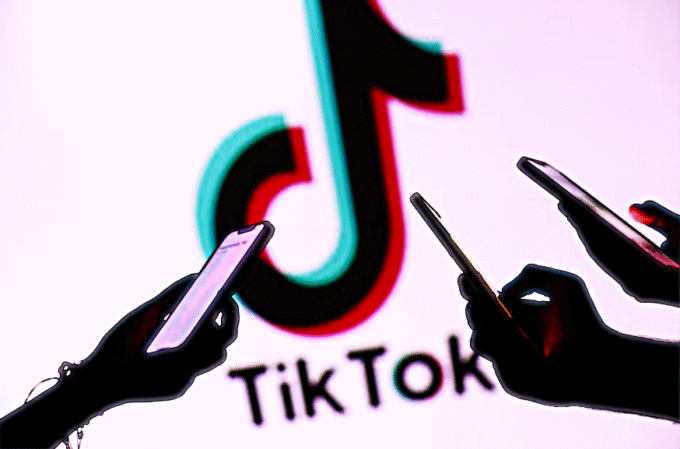In recent times, the Jiniphee leak has captivated attention in various circles. This phenomenon, while cloaked in secrecy and intrigue, has brought forward many questions and a multitude of theories. This guide provides a thorough study for anyone who are interested in learning more about the Jiniphee breach, including its definition, mechanism, and effects on different businesses. You will have a thorough grasp of the leak, its causes, and any possible advantages or disadvantages at the end of this article.
What is the Jiniphee Leak?
The Jiniphee leak refers to a security breach involving sensitive data that was previously stored securely within a private system. Despite its apparent innocuousness, the data includes important information that might upend entire sectors and affect millions of people. Technical leaks frequently involve coded messages or encrypted data that, if made public, might result in vulnerabilities across a wide range of industries.
Origins of the Jiniphee Leak
The original source of the breach was a high-security data center where private data was shielded from unwanted access by multiple levels of encryption. However, a breach happened as a result of a weakness in the system’s protections, exposing private data without authorization.
How Did the Jiniphee Leak Happen?
A more thorough examination of the technological elements underlying the breach is necessary to comprehend how the Jiniphee leak happened. A number of regrettable incidents that resulted in a weakness in an otherwise secure system caused the leak rather than a single error. The breach was caused by a combination of human mistake, cyberattacks, and insider threats.
Insider Threats
Insider threats are one possible explanation for the Jiniphee leak. There is always a chance that a trusted person would abuse their access to information in businesses that handle sensitive data. These insiders may purposefully leak information or carelessly reveal it. Even while there isn’t any concrete proof that an insider was at fault, the possibility is nevertheless concerning.
Cyber Attacks
The sophistication of cyberattacks is another important element that might have played a role in the disclosure. Hackers are always coming up with new ways to get around even the most sophisticated security measures. An outside party seeking to profit from system flaws could have enabled the intrusion through malware or phishing schemes.
Human Error
Lastly, the failure of many security systems has always been mostly down to human error. An insignificant error, such not updating security procedures or improperly installing a firewall, might have permitted unwanted access. Ignoring fundamental security procedures might expose even highly skilled people to cyberattacks.
The Data Exposed in the Jiniphee Leak
The Jiniphee leak did not just expose random data but specific types of information that are critical for different industries. The leak has impacted sectors ranging from financial services to healthcare, with many concerned about the potential ramifications.
Financial Services Impact
For the financial industry, the Jiniphee leak represents a significant threat. Exposed financial records, such as banking details, transactions, and personal information, could lead to identity theft and fraudulent activities. Furthermore, it could result in stock market instability if critical financial data is manipulated or used maliciously.
Healthcare and Personal Information
In the healthcare sector, the leak poses a risk to patient privacy. Confidential medical records, personal health details, and prescription information could be exposed, compromising patient trust and violating privacy laws. This could lead to legal repercussions and severe reputational damage for institutions involved in the breach.
Political and Governmental Implications
Sensitive governmental data, including confidential communications, classified documents, and other political intelligence, could also have been compromised in the Jiniphee leak. The potential for national security threats due to exposure of high-level governmental secrets cannot be understated.
Who Was Affected by the Jiniphee Leak?
The Jiniphee leak has had widespread effects, touching individuals and businesses across the globe. Whether through direct exposure of sensitive information or through the ripple effects on industries dependent on security, the leak has been a game-changer.
Individuals and Consumers
At the individual level, many consumers are left vulnerable, unsure whether their personal data has been exposed. With so many online transactions and digital records in circulation, even seemingly secure websites were not immune to the breach. The leak may result in a rise in identity theft and a loss of consumer confidence.
Businesses and Corporations
For businesses, particularly those in industries like banking, healthcare, and technology, the Jiniphee leak could lead to substantial financial losses. Reputation damage, lawsuits, and even the need to rebuild security infrastructures can place a strain on an organization’s finances and resources. Companies that fail to contain the breach or demonstrate accountability risk losing customer trust.
Governments and Regulators
Governments, particularly those in charge of overseeing security protocols in critical industries, also face challenges after the Jiniphee leak. They may need to reassess and update regulations on data security, which could lead to stricter compliance requirements and increased scrutiny of organizations that handle sensitive information.
The Potential Risks of the Jiniphee Leak
Economic Instability
The most immediate risk of the Jiniphee leak is the potential for economic instability. Market volatility, loss of trust in institutions, and an increase in cybercrime can all contribute to economic downturns. Financial markets, which are highly sensitive to information security, could experience fluctuations as a result of the exposed data.
Identity Theft and Fraud
Identity theft and fraud are urgent issues when attackers obtain personal information. Unauthorized transactions, fraudulent account opening, and even tax fraud could be carried out using exposed personal information. People may find it difficult to undo the harm that identity theft has caused, thus the effects could persist for a long time.
Legal and Reputational Damage
Non-compliance with data protection laws, such the General Data Protection Regulation (GDPR) in Europe, may have legal repercussions for companies and organizations. In addition to serious reputational harm that might take years to repair, class-action lawsuits and regulatory fines could follow.
How to Protect Yourself from the Jiniphee Leak
As an individual, the best way to protect yourself from the Jiniphee leak is to take proactive measures regarding your personal data security. Some steps include:
- Update Passwords Regularly: Change your passwords frequently and use strong, unique passwords for different platforms.
- Enable Two-Factor Authentication: This provides an extra layer of security for your accounts.
- Monitor Bank and Credit Card Statements: Be vigilant in reviewing your financial statements to catch any unauthorized transactions.
- Be Aware of Phishing Scams: Be cautious about unsolicited emails or phone calls asking for personal information.
Businesses should take the following steps to ensure their data security:
- Implement Strong Encryption: Ensure sensitive data is encrypted both in transit and at rest.
- Regular Security Audits: Conduct regular security audits and penetration tests to identify vulnerabilities in your system.
- Employee Training: Educate employees on data security best practices to reduce the risk of human error.
Conclusion
For both individuals and companies, the jiniphee leak breach poses a serious problem. It draws attention to the significance of strong cybersecurity defenses as well as the continuous dangers of data disclosure. Understanding the causes, effects, and dangers of the leak enables people and organizations to take preventative measures against future occurrences of the same kind. In order to preserve data integrity, it is critical that we keep up with new security threats and upgrade our defenses often.
















Leave a comment